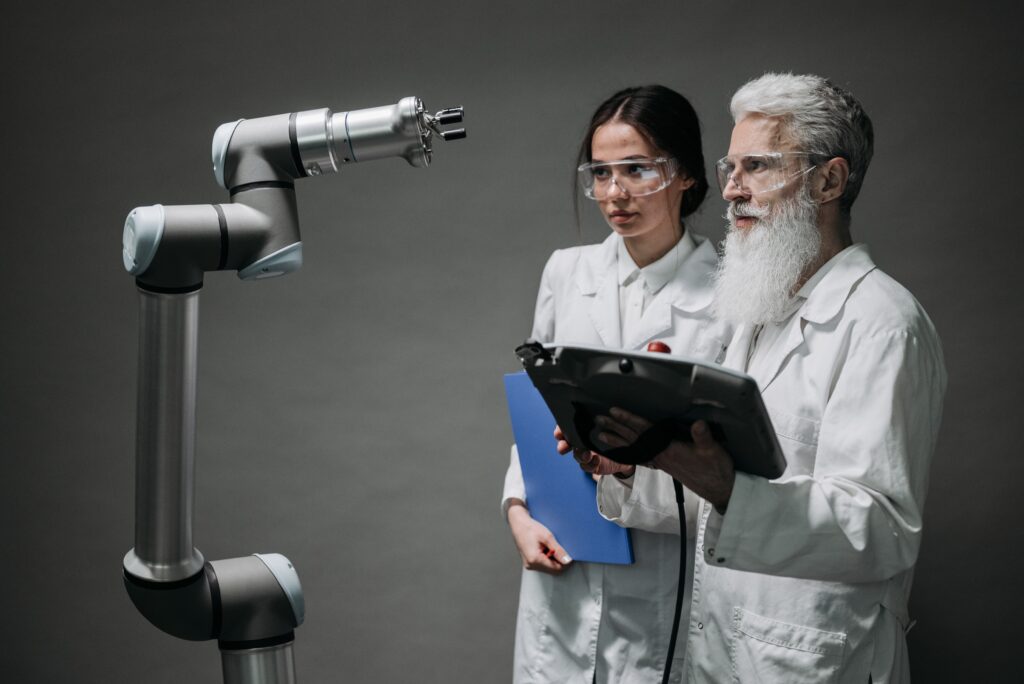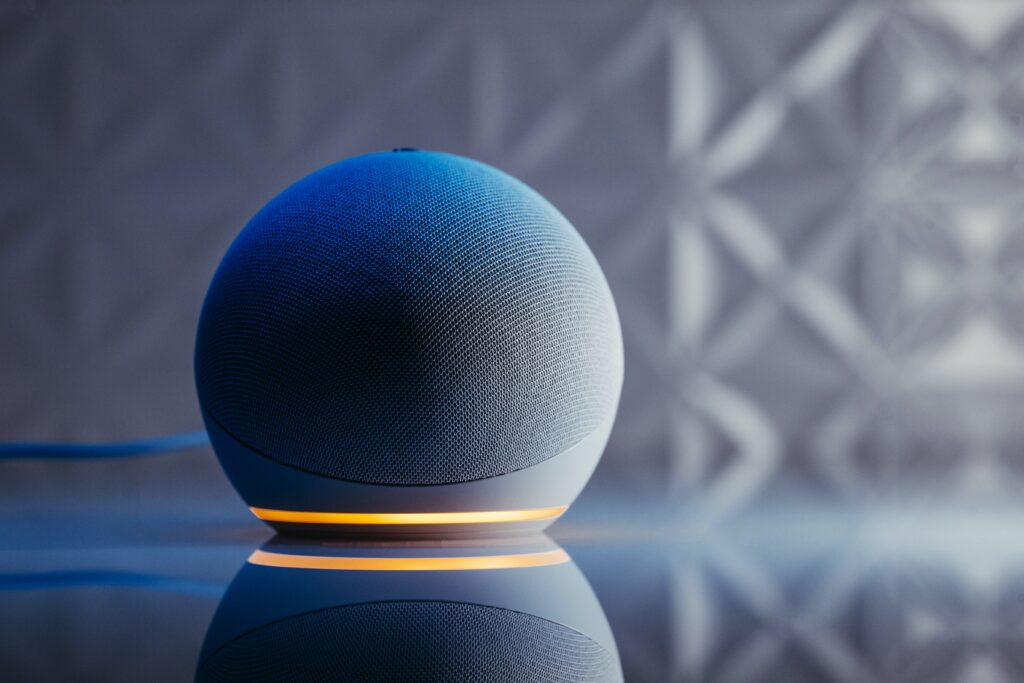The process of providing healthcare healthcare to patients has been transformed by artificial intelligence (AI), which has emerged as a revolutionary force in the industry. AI has the ability to improve treatment results, diagnose illnesses more accurately, and expedite administrative procedures in the healthcare industry. The numerous uses of artificial intelligence in healthcare and how it is revolutionizing patient care will be addressed in this article.
Applications of Artificial Intelligence in Healthcare
AI has multiple applications in the healthcare sector, including predictive analytics, personalized medicine, and AI-assisted diagnosis and therapy.
AI-assisted Diagnosis and Treatment
Helping medical practitioners diagnose and cure illnesses is one of AI’s major contributions to the healthcare industry. In order to deliver accurate and speedy diagnoses, AI systems can analyze huge amounts of patient data, including medical imaging, test findings, and medical records. For example, AI-powered systems can detect early signs of diseases like cancer from medical imaging scans, enabling early intervention and improved patient outcomes.
Artificial Intelligence in Healthcare: Predictive Analytics and Early Disease Detection
AI algorithms can analyze large datasets to identify patterns and predict disease risks in individuals. By analyzing a patient’s medical history, lifestyle factors, and genetic information, AI can help identify individuals at high risk for developing certain diseases. This enables healthcare providers to offer personalized preventive interventions and early disease detection, leading to more effective and targeted healthcare interventions.
Robotics and Automation in Healthcare
Robotic systems powered by AI have the potential to revolutionize surgery and patient care. Surgical robots can assist surgeons in performing complex procedures with higher precision and less invasive techniques. Additionally, AI-powered robots in health care facilities may automate everyday tasks like patient monitoring and drug administration, allowing up healthcare staff to concentrate on more difficult and crucial jobs.
Personalized Medicine and Precision Healthcare
AI is paving the way for personalized medicine, tailoring treatments to individual patients based on their unique characteristics. By analyzing patient data, including genetic information, AI algorithms can predict drug responses, identify potential side effects, and recommend personalized treatment plans. This approach improves treatment outcomes and reduces adverse reactions, leading to more effective and efficient patient care.
Benefits of Artificial Intelligence in Healthcare
The integration of artificial intelligence in healthcare offers several benefits that positively impact patient care and healthcare providers.
Improved Accuracy and Efficiency in Diagnosis
AI algorithms can analyze vast amounts of medical data, enabling more accurate and efficient diagnoses. By quickly processing and interpreting medical images, laboratory results, and patient records, AI can assist healthcare professionals in making informed decisions. This not only lowers the risk of a incorrect diagnosis, but also speeds up the diagnostic process which enables to start the process of treatment quickly.
Enhanced Patient Monitoring and Care
AI-powered monitoring systems may gather and analyze patient data on a continuous basis, giving real-time information on a patient’s state. This enables healthcare providers to proactively identify deterioration or early signs of complications, allowing for timely interventions and improved patient outcomes. AI can also facilitate remote patient monitoring, enabling patients to receive quality care from the comfort of their homes.
Faster Drug Discovery and Development
Traditionally, the process of drug discovery and development is time-consuming and costly. However, AI algorithms can significantly accelerate this process by analyzing vast amounts of biological data, identifying potential drug targets, and predicting drug efficacy. This leads to faster identification of promising drug candidates, reducing the time and resources required for bringing new medications to market.
Cost Reduction and Resource Optimization
AI-driven healthcare systems have the potential to optimize resource allocation and reduce healthcare costs. By automating routine tasks and streamlining administrative processes, AI can free up healthcare professionals’ time, allowing them to focus on more critical patient care activities. Additionally, AI-powered predictive analytics can help healthcare providers identify areas of inefficiency and implement targeted interventions to improve resource utilization.
Challenges and Limitations of Artificial Intelligence in Healthcare
While artificial intelligence offers promising opportunities in healthcare, it also presents several challenges and limitations that need to be addressed.
Data Privacy and Security Concerns
The widespread use of AI in healthcare requires access to vast amounts of sensitive patient data. Protecting patient privacy and ensuring data security are critical concerns. Healthcare organizations need robust data protection measures and compliance with privacy regulations to safeguard patient information from unauthorized access or breaches.
Ethical Considerations in AI-Driven Decision Making
AI algorithms often make decisions based on patterns and correlations in large datasets. However, ethical dilemmas can arise when these decisions impact patient care. Ensuring transparency, fairness, and accountability in AI-driven decision making is essential to maintain trust in healthcare systems and prevent bias or discrimination.
Integration and Adoption Challenges
Integrating AI systems into existing healthcare infrastructures can be complex and challenging. Healthcare organizations need to invest in the necessary technological infrastructure, staff training, and change management processes to successfully adopt AI solutions. Furthermore, interoperability between different AI systems and healthcare platforms needs to be addressed to enable seamless data exchange and collaboration.
Lack of Transparency and Interpretability in AI Algorithms
The lack of transparency in AI algorithms poses challenges in understanding and interpreting the decisions made by AI systems. Healthcare professionals and patients need to trust AI algorithms’ outputs and understand the reasoning behind them to ensure the safe and effective use of AI in healthcare.
Future Trends and Possibilities
The field of artificial intelligence in healthcare is continually evolving, and several future trends and possibilities are worth considering.
Advancements in Natural Language Processing and Voice Recognition
Natural language processing and voice recognition technologies are advancing rapidly. AI-powered systems that can understand and interpret human language enable more efficient documentation, seamless communication between healthcare professionals, and improved patient interactions. Voice-enabled AI assistants can also provide personalized health recommendations and support patients in managing their healthcare needs.
AI-Powered Virtual Assistants in Patient Care
Virtual assistants powered by AI have the potential to enhance patient care delivery. These assistants can provide patients with personalized health information, reminders for medication adherence, and support for lifestyle modifications. By automating administrative processes, responding to commonly requested queries, and providing immediate access to patient data, virtual assistants can help healthcare professionals.
Blockchain Technology for Secure Healthcare Data Exchange
Blockchain technology offers secure and decentralized data storage and exchange, which is particularly crucial in healthcare. By using blockchain, healthcare providers can ensure the privacy, integrity, and interoperability of patient data, enabling secure sharing across different healthcare systems and reducing the chances of data breaches or unauthorized access.
Integration of AI with Emerging Technologies like Genomics and IoT
A large amount of potential exists for improving personalized medicine and patient care through the integration of AI with cutting-edge technologies like genomics and the Internet of Things (IoT). AI algorithms can analyze genomic data to identify genetic markers associated with disease susceptibility, drug response, and treatment outcomes. Additionally, AI can leverage IoT devices to collect real-time patient data, enabling continuous monitoring and proactive healthcare interventions.
Conclusion
Artificial intelligence is transforming patient care by revolutionizing diagnosis, treatment, and healthcare delivery. Its applications in healthcare, such as AI-assisted diagnosis, predictive analytics, robotics, and personalized medicine, offer numerous benefits, including improved accuracy, enhanced patient monitoring, faster drug discovery, and cost reduction. However, challenges related to data privacy, ethical considerations, integration, and transparency need to be addressed for the successful and responsible implementation of AI in healthcare. The future of artificial intelligence in healthcare looks promising, with advancements in natural language processing, virtual assistants, blockchain technology, and the integration of AI with emerging technologies opening up new possibilities for improving patient care.
FAQs
- Q: How does artificial intelligence assist in diagnosing diseases? A: Artificial intelligence analyzes medical data, such as images and patient records, to provide accurate and timely diagnoses.
- Q: Can AI-powered systems predict disease risks? A: Yes, AI algorithms can analyze patient data and identify individuals at high risk for developing certain diseases.
- Q: What are the benefits of AI in patient monitoring? A: AI-powered monitoring systems enable real-time insights into a patient’s condition, facilitating early intervention and improved patient outcomes.
- Q: What challenges does AI face in healthcare? A: Challenges include data privacy concerns, ethical considerations, integration issues, and the lack of transparency in AI algorithms.
- Q: What are some future trends in AI healthcare? A: Advancements in natural language processing, virtual assistants, blockchain technology, and integration with genomics and IoT are key future trends.



